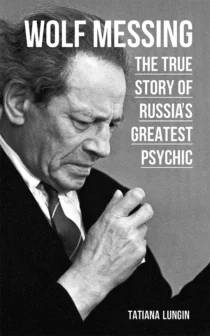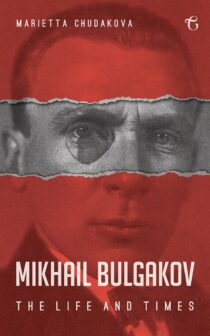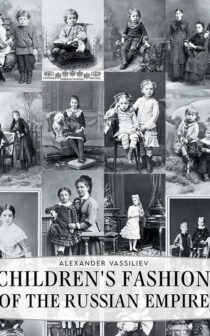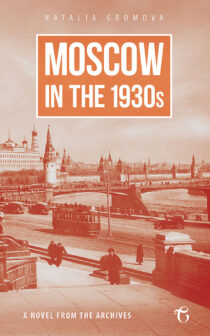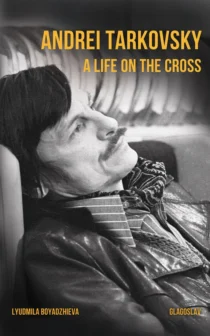Sergei Tretyakov: A Revolutionary Writer in Stalin’s Russia
Price range: €9.95 through €24.99
Author: Robert Leach
Sergei Tretyakov is one of those artists and intellectuals from the first half of the twentieth century whose name is known, but whose achievements are barely recognized. He seems curiously elusive. Who exactly was he? What did he do? A victim of Stalin’s Great Terror, declared an “enemy of the people”, his works were “disappeared” and his name forbidden to be mentioned.
Sergei Tretyakov is one of those artists and intellectuals from the first half of the twentieth century whose name is known, but whose achievements are barely recognized. He seems curiously elusive. Who exactly was he? What did he do? A victim of Stalin’s Great Terror, declared an “enemy of the people”, his works were “disappeared” and his name forbidden to be mentioned.
But he was at the very heart of avant-garde modernism. He collaborated with Sergei Eisenstein both in the theatre and on films, and was behind Eisenstein’s formative theory of “the montage of attractions”. He was one of Vladimir Mayakovsky’s most intimate associates. He was a crucial influence in the formulation of Vsevolod Meyerhold’s biomechanics and of Bertolt Brecht’s Verfremdungseffekt, and he was a potent force behind Walter Benjamin’s The Work of Art in the Age of Mechanical Reproduction.
His influence grew from the astonishing range of his intellectual and artistic work. He was a distinguished poet and playwright, and a formidable cultural theorist. He played the piano with skill, precision and feeling, he could draw cartoons good enough to be reproduced in newspapers, he became one of Russia’s foremost radio broadcasters, and he was an outstanding photographer.
At the same time, he was a warm and affectionate husband and father, a bold, argumentative and charismatic friend, and a shrewd observer of revolutionary Russia’s hopes and struggles.
This book uncovers the multifarious facets of this fascinating artist and thinker, sets his ideas in the context of his time and for the first time reveals the significance of his diverse achievements.
| Dimensions | N/A |
|---|---|
| Author | Robert Leach |
| Pages | 294 pages |
| Publication date | 30th August 2021 |
| Book Format | Hardcover, Paperback, EPUB, Kindle, PDF |
Endorsements and Review Quotes
“Tretyakov emerges from Leach’s biography as a linchpin of the interwar avant-garde: a masterful mediator, ceaselessly moving and relentlessly productive, connected to everything and everybody.” Edward Tyerman, Los Angeles Review of Books
“This book will appeal to a readership that wishes to focus on Tretyakov’s literary and visual output, rather than a clearly sequenced life of this artistic polymath. The author is at his best when describing early Soviet theatrical theory and its realisation during Tretyakov’s lifetime.” John Cook, ASEES
“Leach’s work is strongest when analysing Tretyakov’s texts and describing the wider artistic, cultural and social contexts within which Tretyakov operated. Although occasionally chronologically disorienting, Leach’s thematic digressions and anecdotes are well illustrated and researched. The text’s overall effect is atmospheric, compelling and informative. Leach’s useful translations of extracts from Tretyakov’s works make us want to read more. Fortunately, we already have Robert Leach’s translations with Stephen Holland of Tretyakov’s plays (I Want a Baby and Other Plays, Glagoslav, 2019), but it remains a gross injustice that so many of Tretyakov’s works remain out of print. Leach’s biography is a welcome addition to the literature of neglected Soviet artists and the revolutionary potential of socialist art.” Andrew George, SCRSS Digest
“In this excellent and ever readable biography, Leach, as an admirer and translator of Tretyakov’s poetry and plays, essays, and travel writing, continuously sympathizes with the idealist while being scrupulous about what is known and what isn’t about the many turns of Tretyakov’s development as an artist and bureaucrat”. Robert Blaisdell, Russian Life
This biography “was a fascinating read from start to finish, and it comes with 27 illustrations. useful notes and a moving coda in the form of “Dustprints”, a poetic tribute by Leach himself. It makes a poignant end to the story of an artist who believed strongly that art should be involved in improving the world and very much put his money where his mouth was. Sergei Tretyakov was an inspirational innovator and his name should be much more widely known; Leach’s excellent book shines a welcome light on an under-appreciated member of Russia’s revolutionary intelligentsia and will hopefully go some way to helping with that!” Kaggsy’s Bookish Ramblings
“With the English-language edition of his plays, and now with this biography, Dr Leach has certainly ensured that Tretyakov comes into focus for contemporary readers. He is a figure whose work reflects some of the most fascinating years of Soviet culture, and today we now have excellent means available to restore him to the place he deserves alongside his peers.” Peter Lowe, RUSSIAN ART + CULTURE
“As the first full-length biography of Tretyakov in either English or Russian, this book is a long-overdue addition to the scholarship of early Soviet avant-garde literature and culture. […] This is a timely study that will be sure to generate further interest in this important cultural figure among scholars of the early Soviet period and theatre makers with an interest in political drama.” Jesse Gardiner, SEEJ
“The book is the product of a career-long devotion to the work of Tretyakov and to his surviving family. Leach has constructed his biography through study of what archival evidence survives, plus many years of conversation with Tretyakov’s daughter, Tatyana Tretyakova. […] It’s a work of love to be sure, but a professional and respectful one.” Thom Dinsdale, East-West Review
“Leach’s nearly unrivaled expertise in early Soviet theater fully informs his thorough review of a remarkable – and sadly overlooked – creative mind.” D.C. Maus, CHOICE: Scholarly Reviews for Academic Libraries
“[I]f you have an interest in Russia and Russian poetry and life, it’s a book you should most definitely buy.” Quantum Leap poetry magazine
“In this enjoyable and vividly written book, the British academic and theater director Robert Leach introduces us not simply to Tretyakov’s time, but also to his thinking, which was influenced by, and has had influence upon, such great minds as Vladimir Mayakovski, Boris Arvatov, Alexander Rodchenko, Vsevolod Meyerhold, Sergei Eisenstein, Bertolt Brecht, and Walter Benjamin.” Tatjana Hofmann, Russian Review
“Leach is an enthusiastic and empathetic biographer, much informed by his friendship with Tatyana, Olga’s daughter from a previous marriage, and adopted by Tretyakov. We live at a time when things are purported to move at unprecedented speeds, but Tretyakov packed an amazing amount of work and history into a production life that was less than 20 years.” Peter Gordon, The Asian Review of Books
“Die 1930er Jahre waren geprägt durch sein Projekt der Internationalisierung der Sowjetliteratur; auf dem Höhepunkt seiner internationalen Reputation kamen viele ausländischen Besucher wie z. B. Brecht und Feuchtwanger zu ihm nach Moskau. Zugleich begannen gesundheitliche Probleme, und der politische Terror und die Angst nahmen zu. […] Es erscheint fast wie eine Ironie des Schicksals, dass Tret’jakov, der Verfechter der Fakten gegen die Fiktion, im Anschluss an ein geradezu fantastisches Gerichtsverfahren, das bar jeglicher Fakten war, erschossen wurde.” Schamma Schahadat, Jahrbücher für Geschichte Osteuropas


